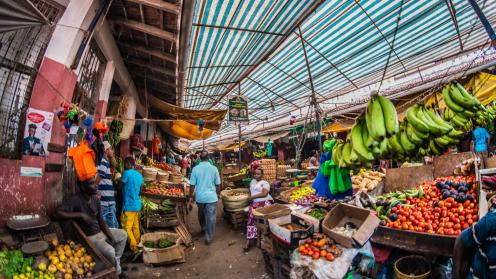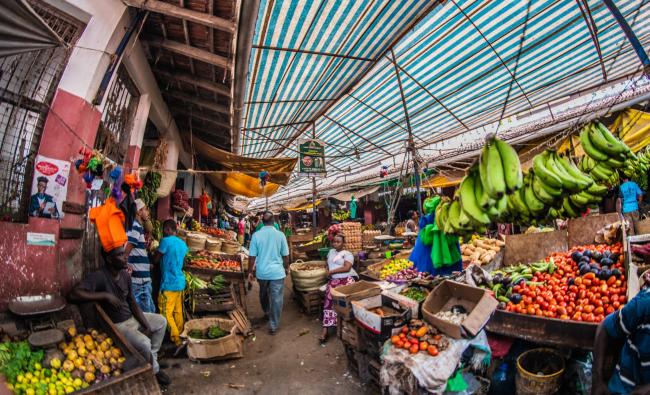In opening remarks, Gerrit Hansen, Program Director for Climate Change, Robert Bosch Stiftung, noted the objective of the joint event series is to focus on the essence of a just transformation of land use that secures peoples’ livelihoods, provides nutritious food, mitigates climate change, and protects biodiversity. In line with international instruments, such as the International Covenant on Economic, Social, and Cultural Rights, which establishes the universal right to food, she proposed thinking of this right as a safeguard and reference point for nature-based solutions and the creation of climate-resilient landscapes that work for people.
Barend Erasmus, University of Pretoria, highlighted that food challenges cannot be addressed without addressing climate resilience. He stressed this event’s role in elevating Africa’s voice on the land-food-climate nexus and in underscoring the importance of the right to food ahead of the UN Food Systems Summit (UNFSS).
A first panel discussion focused on the issue of resilient landscapes for people and the planet. Panelists converged on the need for holistic, multi-sectoral approaches connecting rural development with food systems transformation. Several speakers pointed to the adverse effects of certain agricultural subsidies in terms of ecosystem degradation and market distortion, both at the national level and from an international trade perspective. Much emphasis was put on the need for effective multi-stakeholder processes that empower smallholder farmers, pastoralists, and local communities.
The second panel discussion addressed the need for food systems transformation and reflected on the UNFSS process. Martin Frick, Deputy to the Special Envoy for the UNFSS, shared his perspective on the process, noting the aim to foster conversation among all of society at the national level and highlighting that over 50 countries already published food system transformation pathways resulting from these discussions. Other speakers expressed concern that not all voices have been heard, such as during the process leading to the African Union’s proposal to the UNFSS on the future of the African food system, and concern about the Green Revolution agenda, calling for more attention to agro-ecology, human rights, and the right to food as a critical issue.
In closing remarks, Violet Shivutse, Director, Shibuye Community Health Workers, lauded the principle of “leaving no one behind” in the 2030 Agenda for Sustainable Development, but emphasized this is not being implemented in practice. She called for dialogue formats that allow farmers to shape the agenda and for partnerships that enable the scaling-up of community-level solutions to turn the principle into reality.
Alexander Müller, Managing Director, TMG Research, underscored the responsibilities of European countries, and the Global North more generally, in mitigating climate change and reducing their environmental footprint to ensure that African countries have space to adapt. He emphasized that transformation of food systems cannot be tackled at the national level, but requires global governance responses, including in terms of subsidy reforms.
To receive free coverage of global environmental events delivered to your inbox, subscribe to the ENB Update newsletter.
















